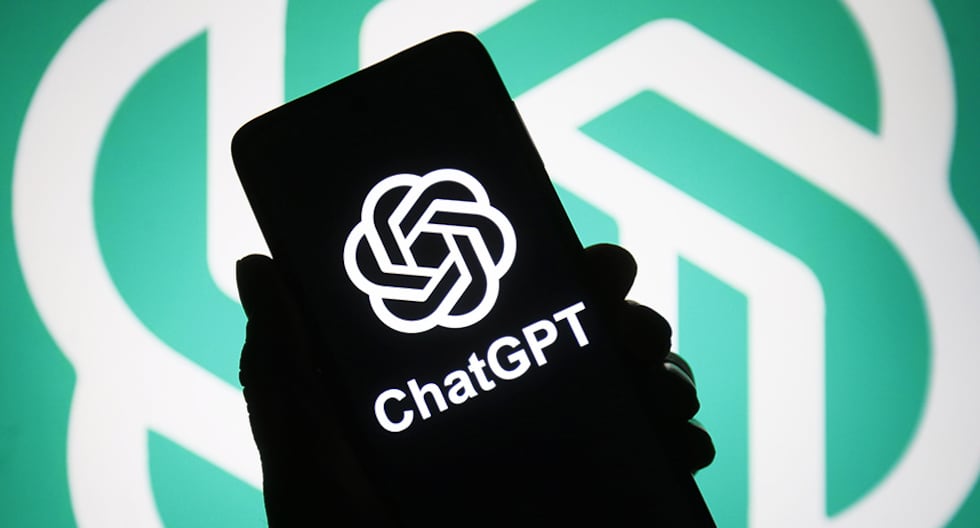OpenAI And ChatGPT: The FTC Investigation And The Future Of AI

Table of Contents
The FTC Investigation: Unpacking the Concerns
The FTC investigation into OpenAI and ChatGPT stems from growing concerns surrounding the responsible development and deployment of powerful AI technologies. The investigation focuses on several key areas, all of which are critical for establishing trust and ensuring ethical AI practices.
Data Privacy and Security
OpenAI's data collection practices are under intense scrutiny. The FTC is particularly interested in potential violations related to user privacy and data security. The sheer volume of data used to train ChatGPT raises concerns about potential misuse and vulnerabilities.
- Illegal data scraping: Concerns exist regarding the sourcing of training data and whether it adheres to copyright and privacy laws.
- Lack of informed consent: Questions remain about whether users provide sufficient informed consent regarding how their data is used to train and improve the model.
- Data security breaches: The massive dataset used by OpenAI is a potential target for malicious actors, highlighting the need for robust security measures.
- Data misuse: The potential for unintended or malicious use of personal data gathered during ChatGPT's operation is a significant concern.
Algorithmic Bias and Fairness
ChatGPT, like other LLMs, is trained on vast datasets reflecting existing societal biases. This can lead to outputs that perpetuate or even amplify harmful stereotypes. The FTC's concern centers on ensuring fairness and preventing discriminatory outcomes.
- Gender bias: ChatGPT's responses may exhibit gender bias, reinforcing harmful stereotypes about roles and capabilities.
- Racial bias: Similar biases can manifest along racial lines, leading to unfair or discriminatory outcomes.
- Reinforcement of stereotypes: The model's outputs can inadvertently reinforce existing societal biases, hindering progress towards equality.
- Unfair or deceptive practices: Biased outputs can lead to unfair or deceptive practices, impacting users negatively.
Misinformation and Malicious Use
The ability of ChatGPT to generate human-quality text raises significant concerns about the potential for its misuse. The FTC is investigating the potential for the technology to be used to generate and spread misinformation.
- Deepfakes: ChatGPT can be used to create realistic but fabricated audio and video content (deepfakes), which can be used for malicious purposes.
- Propaganda generation: The technology can be exploited to generate persuasive but misleading content for propaganda campaigns.
- Spread of harmful ideologies: ChatGPT's ability to generate text makes it a potential tool for disseminating harmful ideologies and extremist viewpoints.
- Cybersecurity threats: The technology could be used to craft convincing phishing emails or other forms of social engineering attacks.
Implications for the Future of AI Development
The FTC investigation will undoubtedly shape the future of AI development, leading to significant changes in regulation, safety protocols, and industry practices.
Enhanced AI Regulation
The investigation highlights the urgent need for clearer and more comprehensive AI regulation. This will likely involve:
- Data protection laws: Stronger laws are needed to protect user data and ensure responsible data handling practices.
- Algorithmic accountability: Mechanisms for auditing and assessing the fairness and transparency of AI algorithms will become crucial.
- Transparency requirements: Greater transparency is needed in the development and deployment of AI systems, allowing for better oversight and accountability.
- Independent audits: Independent audits of AI systems can help identify and mitigate potential risks and biases.
Increased Focus on AI Safety and Security
The potential for misuse of AI technologies necessitates a significant increase in focus on AI safety and security. This includes:
- Red teaming: Employing adversarial techniques to identify and mitigate vulnerabilities in AI systems.
- Adversarial training: Training AI models to be robust against malicious inputs and attacks.
- Robustness testing: Rigorous testing is needed to ensure the reliability and safety of AI systems under various conditions.
- Explainable AI (XAI): Developing AI systems that are transparent and understandable, making it easier to identify and address biases and vulnerabilities.
The Evolution of OpenAI's Practices
In response to the FTC investigation and growing concerns, OpenAI is likely to implement significant changes to its practices. This could involve:
- Improved data governance: More robust systems for data collection, storage, and use are essential.
- Bias detection and mitigation techniques: Advanced techniques for identifying and mitigating bias in AI models will be crucial.
- Enhanced safety protocols: Strengthened security measures are needed to protect against misuse and malicious attacks.
- User feedback mechanisms: Implementing mechanisms for users to report issues and provide feedback will improve the safety and reliability of the model.
Navigating the Ethical Landscape of Generative AI
The ethical implications of generative AI extend far beyond the scope of the FTC investigation. The technology poses numerous challenges, including:
- Copyright infringement concerns: The use of copyrighted material in training datasets raises significant legal and ethical questions.
- Job displacement anxieties: The automation potential of generative AI raises concerns about job displacement across various industries.
- Misuse in academic settings: The potential for students to use ChatGPT for academic dishonesty is a growing concern.
- The need for transparent AI development practices: Open and transparent development practices are crucial for building trust and ensuring ethical AI development.
Conclusion: The Path Forward for OpenAI, ChatGPT, and the Future of AI
The FTC investigation into OpenAI and ChatGPT underscores the critical need for responsible AI development. The potential benefits of generative AI are immense, but they must be weighed against the significant risks. Addressing concerns about data privacy, algorithmic bias, and the potential for misuse is paramount. The future of AI hinges on a collaborative effort involving researchers, policymakers, and the public to establish ethical guidelines, robust safety protocols, and transparent regulatory frameworks. Stay informed about the evolving landscape of AI regulation and the ongoing debate surrounding OpenAI, ChatGPT, and the responsible development of AI. Follow organizations like the AI Now Institute and the Partnership on AI to stay updated on the latest developments and contribute to the ongoing discussion. The responsible development and deployment of AI is not merely a technical challenge; it's an ethical imperative.

Featured Posts
-
 Amy Walsh Defends Wynne Evans Following Sexual Slur Allegation
May 10, 2025
Amy Walsh Defends Wynne Evans Following Sexual Slur Allegation
May 10, 2025 -
 Edmonton School Projects 14 Initiatives On Accelerated Timeline
May 10, 2025
Edmonton School Projects 14 Initiatives On Accelerated Timeline
May 10, 2025 -
 Debate Erupts Jeanine Pirros Views On Due Process For Us Citizens In El Salvador Prisons
May 10, 2025
Debate Erupts Jeanine Pirros Views On Due Process For Us Citizens In El Salvador Prisons
May 10, 2025 -
 Dakota Johnson With Family At Materialist Premiere Photos
May 10, 2025
Dakota Johnson With Family At Materialist Premiere Photos
May 10, 2025 -
 Detencion De Estudiante Transgenero Polemica Por El Uso De Banos Femeninos
May 10, 2025
Detencion De Estudiante Transgenero Polemica Por El Uso De Banos Femeninos
May 10, 2025
